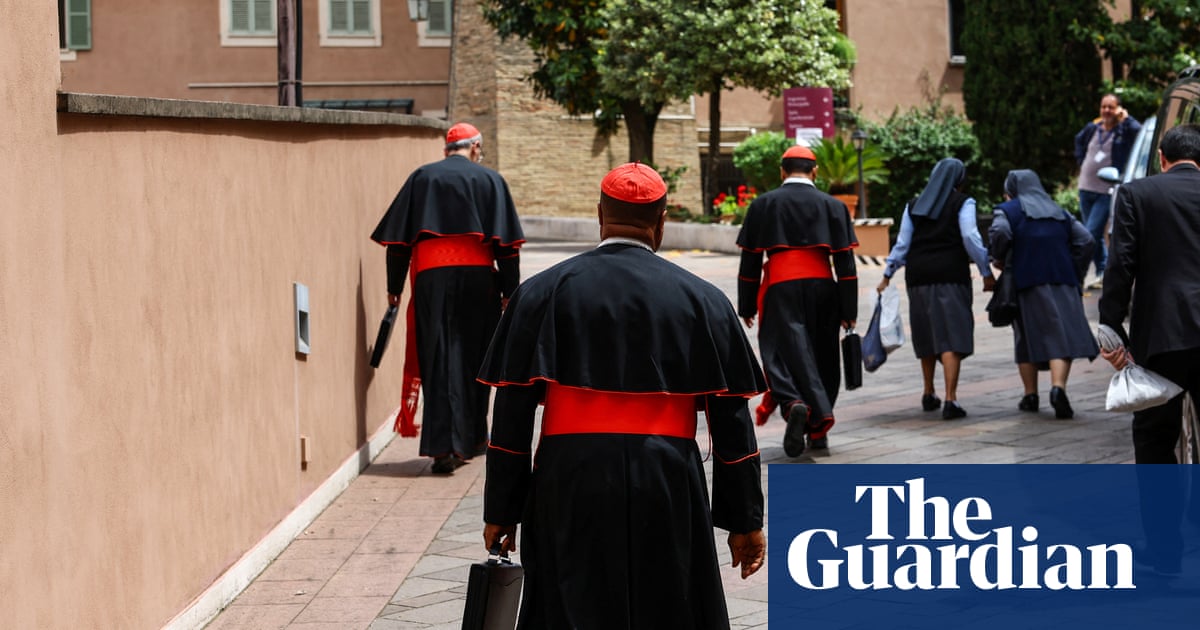In the coming days, the Roman Catholic church will have a new leader, cheered by the faithful in St Peter’s Square. Once the prayers are over and the crowds have dispersed, what issues must the new pope grapple with?
A key task will be to strengthen unity within the church amid growing polarisation in the world and different views and expectations within the church. Some observers believe there is a real risk of schism after 20 years in which there have been popes on either end of the spectrum: the traditional/conservative Benedict XVI, and the liberal/progressive Francis.
Will the new pope be a unifying figure, reaching out to both traditionalists and progressives, and steering the church through the choppy waters of the 21st century? Or will he be identified with one wing of the church, thereby alienating another wing?
A key area of unity and healing will be the American Catholic church, where Pope Francis was a divisive figure. Some US bishops are avid supporters of Donald Trump whileothers are dismayedby the president’s policies and statements. An early visit to the US may be high on the new pope’s agenda.
The pope has an important role to play on the international stage, particularly to ensure that religion does not become a fault line. He will face ongoing conflicts in Ukraine, the Middle East and Sudan plus the politically divisive issues of migration, the climate crisis, religious freedom and human rights.
Christine Allen, chief executive of the Catholic Agency for Overseas Development (Cafod), said: “Our new pope will take on the papacy as the world faces a challenging international combination of spiralling global debt, accelerating climate change, and escalating humanitarian need …
“The new pontiff will be one of only a few people in the world who can cross political divides and use his moral influence to help all of us look beyond our narrow self-interests and work together to overcome our collective challenges.”
In common with other world leaders, the new pope will have to navigate Donald Trump’s second term in the White House. Pope Francis openly rebuked both the first and second Trump administrations onissues such as migration.
The legacy ofsexual abuse cast a long shadowover Francis’s papacy. He was slow to grasp the scale and systemic nature of the problem, and at first did not understand the pain and anger of survivors. That pain has not gone away, and the new pope’s approach will inevitably come under intense scrutiny.
The Survivors’ Network of those Abused by Priests (Snap), issued awarning shotlast week by saying several cardinals who were thought to be in the running to succeed Francis may have mishandled or helped to cover up cases of abuse.
Peter Isely, a founding member of Snap, said abuse was just beginning to come to light in some parts of the world. “ Parts of Africa are by far the most dangerous for children in the Catholic church, and the survivors who come forward there face enormous shunning, face enormous threats,” he told reporters in Rome.
Protecting children and vulnerable adults, especially in places where the implementation of safeguarding procedures is challenging, is a key issue in the papal in-tray.
The new pope will need to take decisions on governance within the church, including the pace of change and levels of inclusion regarding laity and women. He will need to make key appointments within days to get the new papacy up and running.
There has been a trend towards appointing qualified, professional lay people to Vatican jobs rather than clerics. Under Francis,some key roles went to womenfor the first time, but some say the process of change could be both quicker and more far-reaching.
Sister Nathalie Becquart, who served as undersecretary of the Synod of Bishops for four years, said there was “no way to go back” but “a change of mindset and a change of culture” was still in progress. “The next step is to encourage the involvement of women at all levels of the church,” she told BBC Radio 4’s Sunday programme.
There are two aspects to this for the new pope’s attention: general oversight and transparency, on which there was significant progress under Pope Francis but still more to do; and the unsustainable levels of deficit in the Vatican finances, which deteriorated during Francis’s papacy. In 2022, the Vatican budget accounts were about $94m in the red, and the Vatican pension fund reportedly had a shortfall of more than $700m.
One senior cardinal, Angelo Becciu, withdrew from the conclave last week because ofconvictions in 2022 of financial crimes(he is appealing). Francis had forced Becciu to quit his post after allegations of financial mismanagement came to light, but Becciu only withdrew from the conclave after being presented with letters written by Francis before he died saying Becciu should not take part in the process to elect the next pope.
Francis shifted the church’s dial on issues relating to sexuality and identity, condemning discrimination against LGBTQ+ people, meeting trans men and women and authorising the blessings of same sex couples. LGBTQ+ Catholics welcomed his compassion and affirmation while acknowledging he did not change church teaching. Francis’s standpoint prompted a backlash among traditionalists, and the new pope will be watched closely for his views.
He will also need to consider the issue of celibacy for priests. Francis ultimatelyducked the issue of whether to allow married priestsin parts of the world, such as the Amazon, where there is a dire shortage. Will the new pope push it through?
